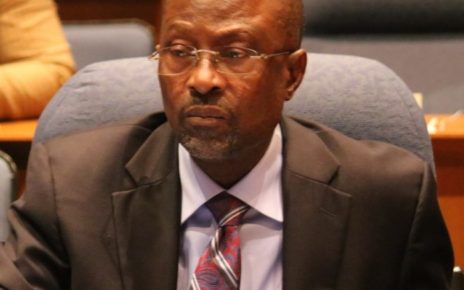There are strong indications that the Federal Government may revise some of the taxes, charges, levies and other related costs of airlines operating in the country in order to re-position the nation’s aviation industry on the path of sustainable growth.
This fiscal measure may follow the recommendations of the committee earlier set up by the government to look at reforms in the aviation industry as regards the various taxes being charged airlines. Already has completed its work and submitted the report to the government.
The Director, Air Transport Regulations, Group Capt. Edem Oyo-Ita (rtd), gave some hint on the completion of the committee’s work at the Sensitisation Workshop on the Commencement of the Single African Air Transport Market (SAATM) held in Lagos.
Oyo-Ita disclosed that the Minister set up the committee to look at harmonisation of taxes that had made airline operations unprofitable, particularly those fiscal charges linked to low performance of indigenous carriers.
Available records indicate that Nigerians airlines pay up to 34 taxes and charges comprising aeronautic and non-aeronautic payments, excluding charges collected from passengers as air tickets.
For instance, a source confirmed that 21 of the charges are paid into the coffers of the Federal Airports Authority of Nigeria (FAAN), six to the Nigerian Airspace Management Agency (NAMA) and Nigerian Civil Aviation Authority (NCAA).
A breakdown of the aeronautic charges includes, aircraft inspection, which is tickets and Duty Tour Allowance (DTA) paid to the coffers of NCAA. The DTA is usually based on the country of inspection.
Also, landing charges are divided into two – day and night. During the day, airlines pay N25 per kilogramme of the aircraft weight as compared to the N37.5 per kilogramme of the aircraft at night.
In his remarks at the workshop, the Minister of State for Aviation, Hadi Sirika, pointed out that more than ever before, the future presents both challenges and huge economic potential for the African aviation sector.
He explained that as a continent striving to reposition itself by leveraging on the immense potentials that the full implementation of Yamoussoukro Decision (YD) through the Single African Air Transport Market (SAATM) offers in the years ahead in terms of enhancing traffic connectivity and improving growth in passengers volumes.
Represented by the Managing Director of Nigerian Airspace Management Agency (NAMA), Capt. Fola Akinkuotu at the forum, the minister therefore charged African countries to commit to the full implementation and operationalization of SAATM as a strategic step towards making them big players in the increasingly competitive global aviation space.
The Minister explained that Nigeria recognized the need to provide for enhanced traffic growth that will be an offshoot of the full operationalization of SAATM.
“Currently some of the International airports are being expanded with the addition of new terminals, the Government has also approved the concession of the major international airports in its efforts to reposition them for better service delivery”, Sirika said.
He commended the AFCAC for its efforts to create more awareness on the SAATM and its participation with member states in the continental and global aviation activities to ensure full implementation of YD.
Nigeria is one of the 23 states that have so far made solemn commitment to the implementation of SAATM by 2018. The country has constituted a National Implementation Committee to review all the subsisting Bilateral Air Services Agreements (BASAs) to be in consonance with the YD while the process of domesticating the decision is currently at the advance stage.
Commenting, the Secretary General of African Civil Aviation Commission (AFCAC), Iyabo Sosina, said that through the advocacy activities African Union Commission, AFCAC and current members of the Ministerial Working Group, the number of countries that have signed the solemn commitment had increased to 23.
The countries are, Benin, Burkina Faso, Botswana, Cape Verde, Republic of Congo, Cote d’Ivoire, Egypy, Gabon, Ghana, Guinea Conakry, Kenya, Liberia, Mali, Mozambique, Niger, Nigeria, Rwanda, Sierra Leone, South Africa, Swaziland, Togo and Zimbabwe.



